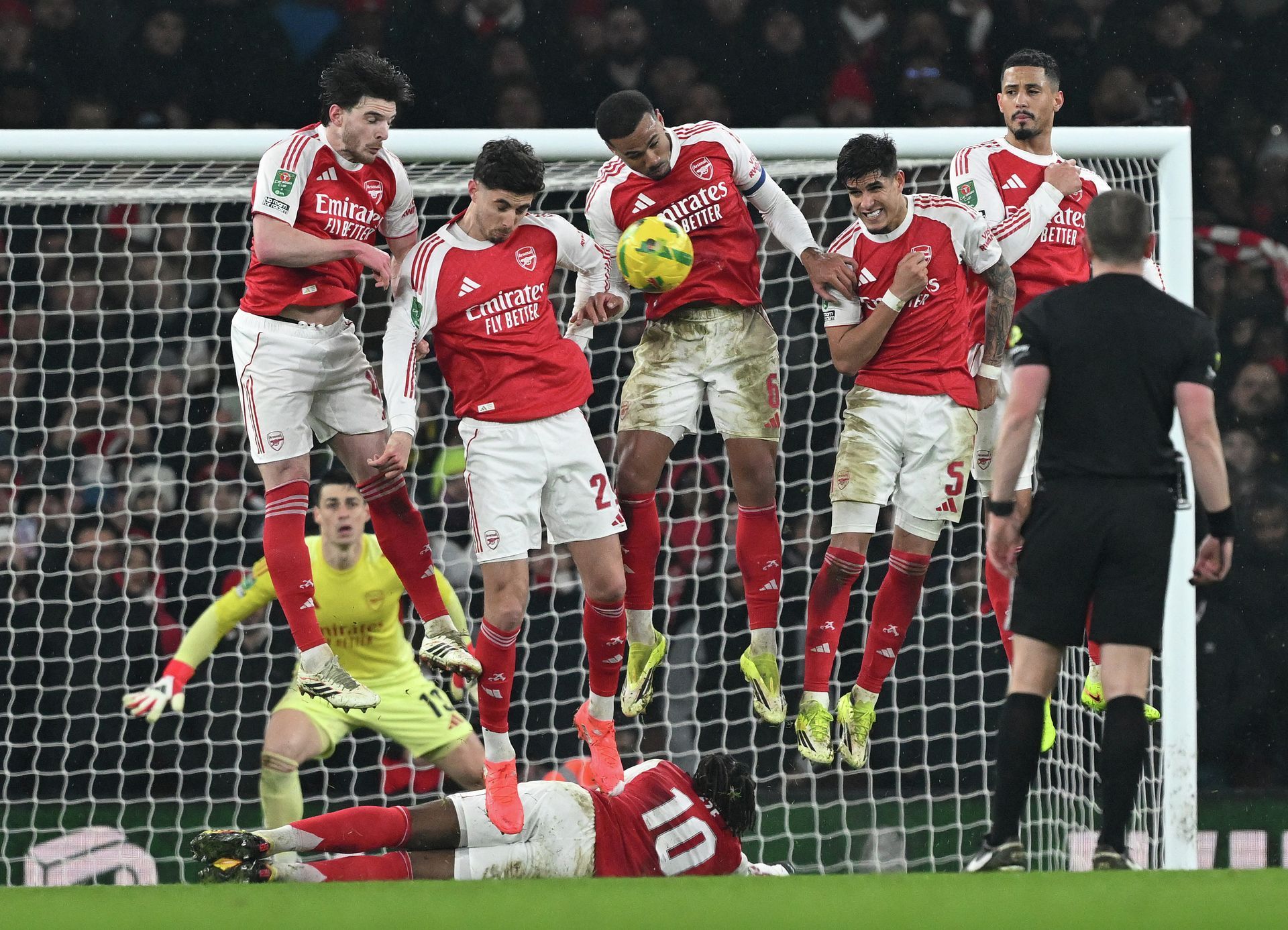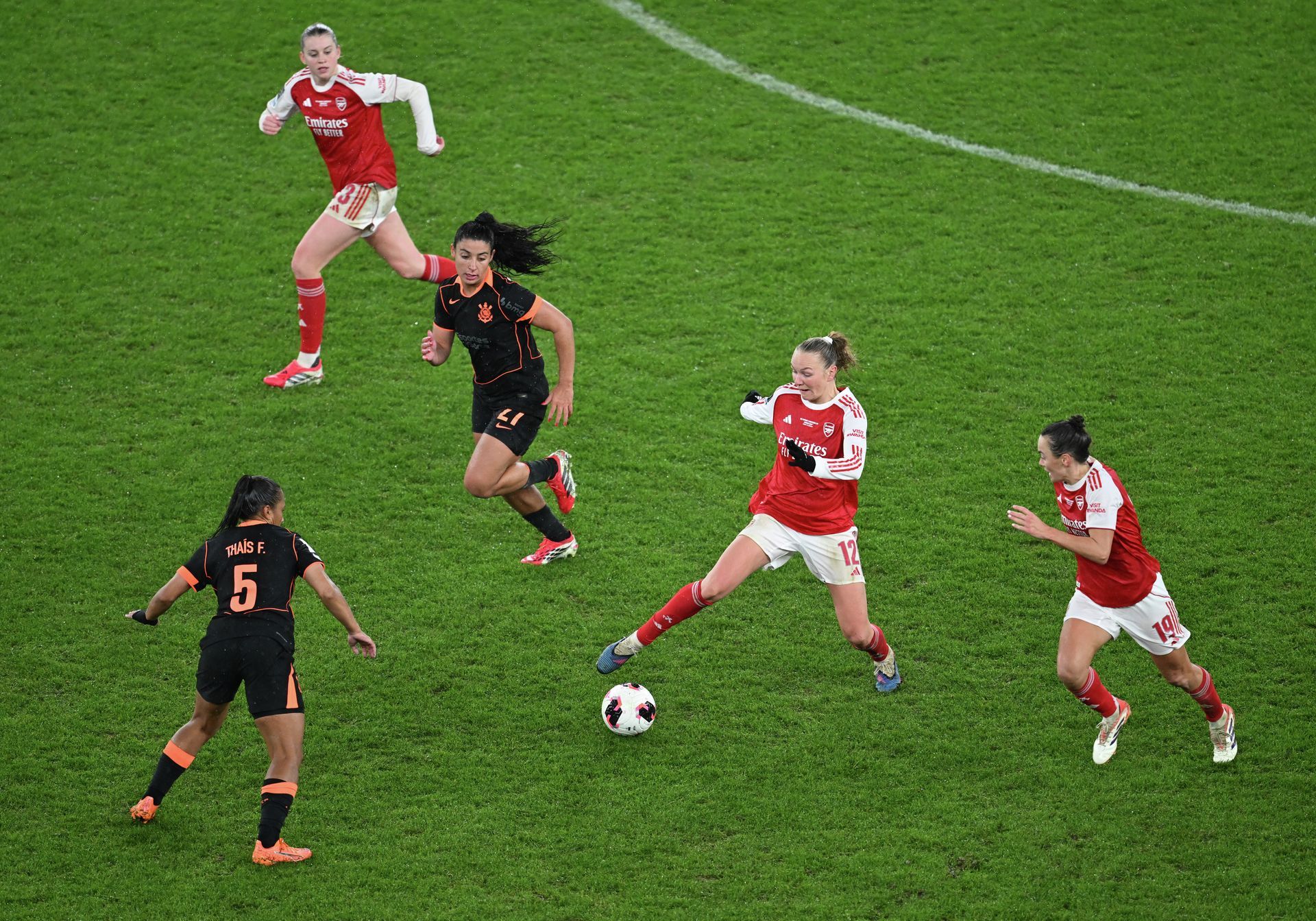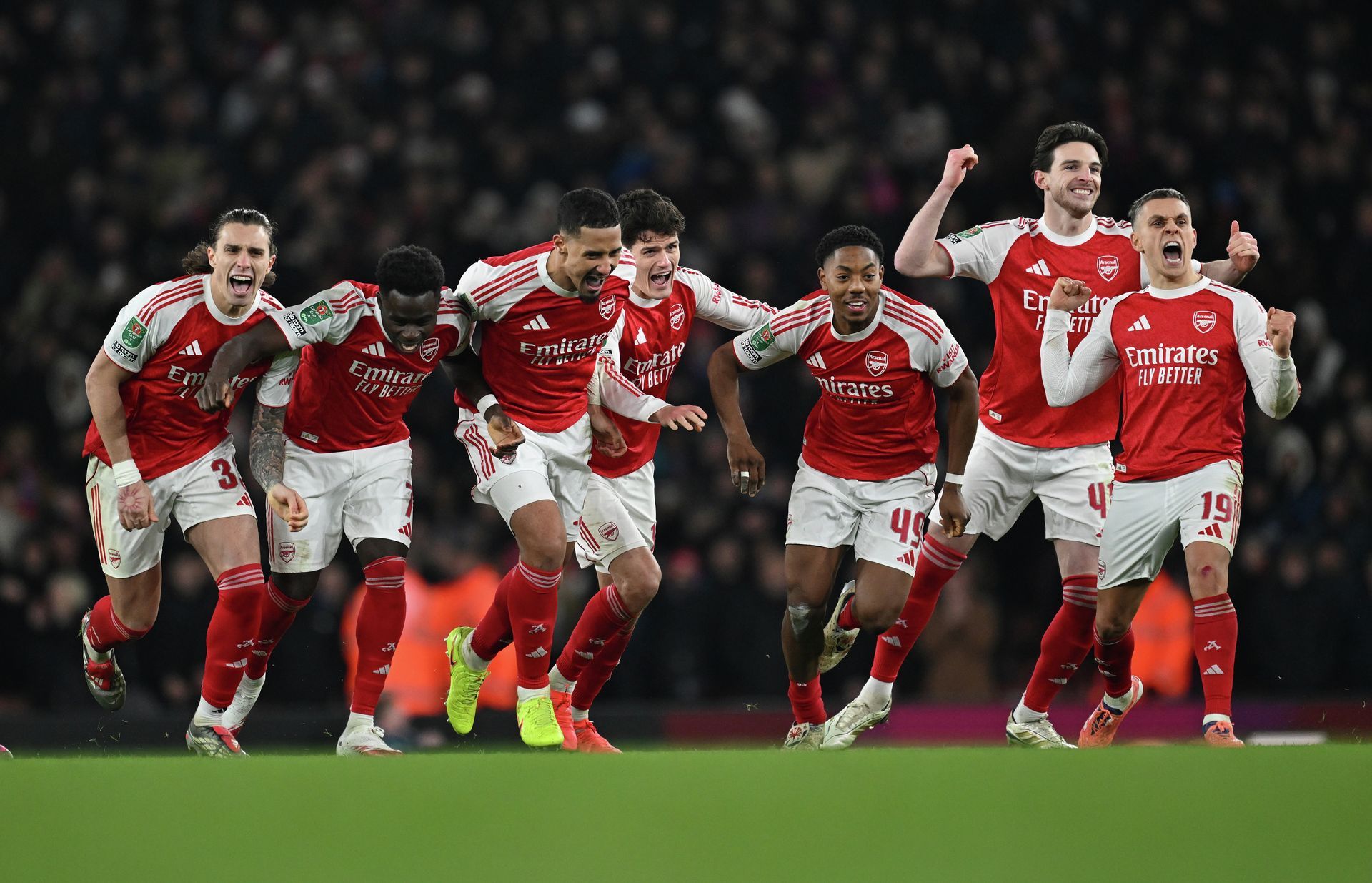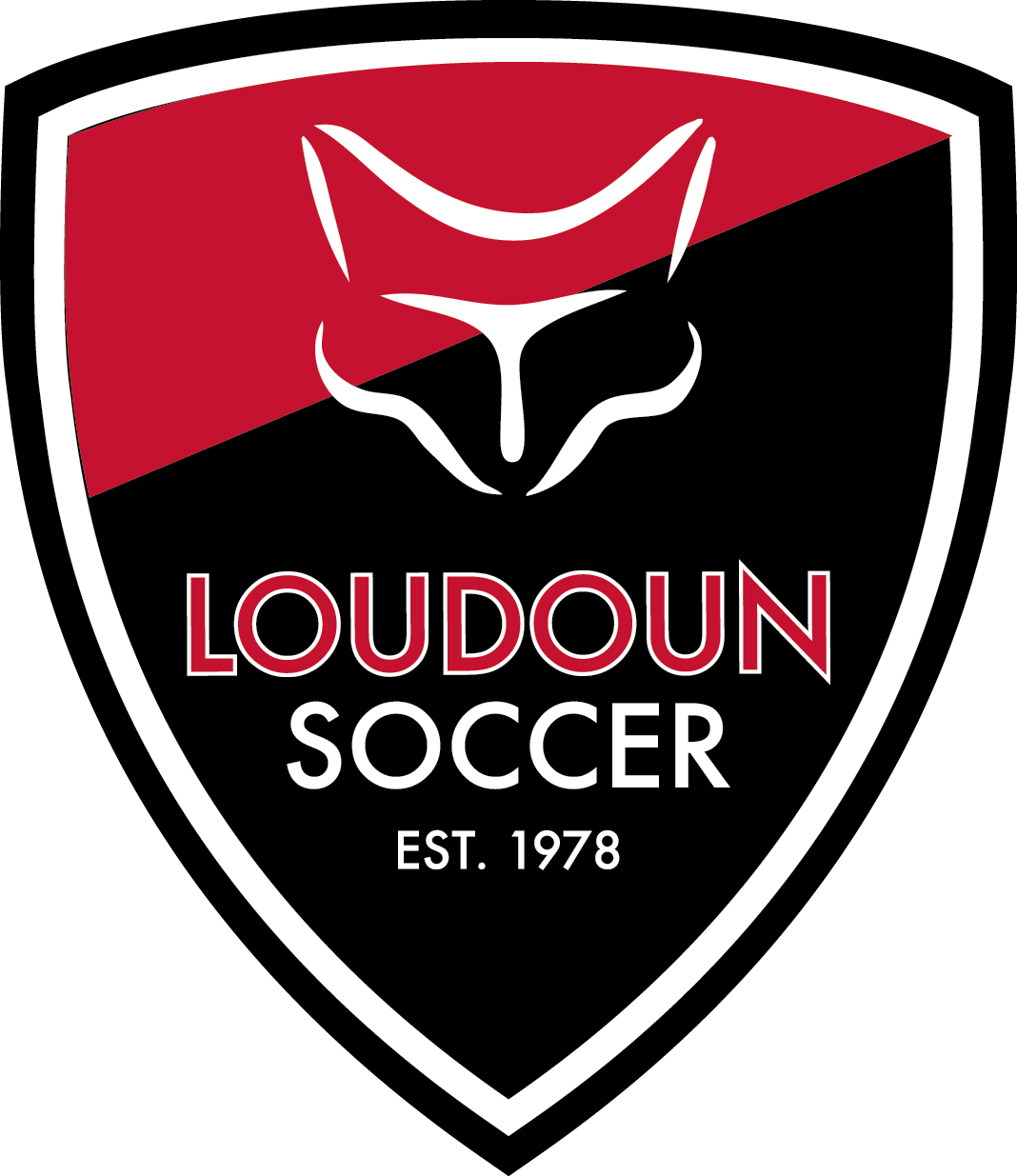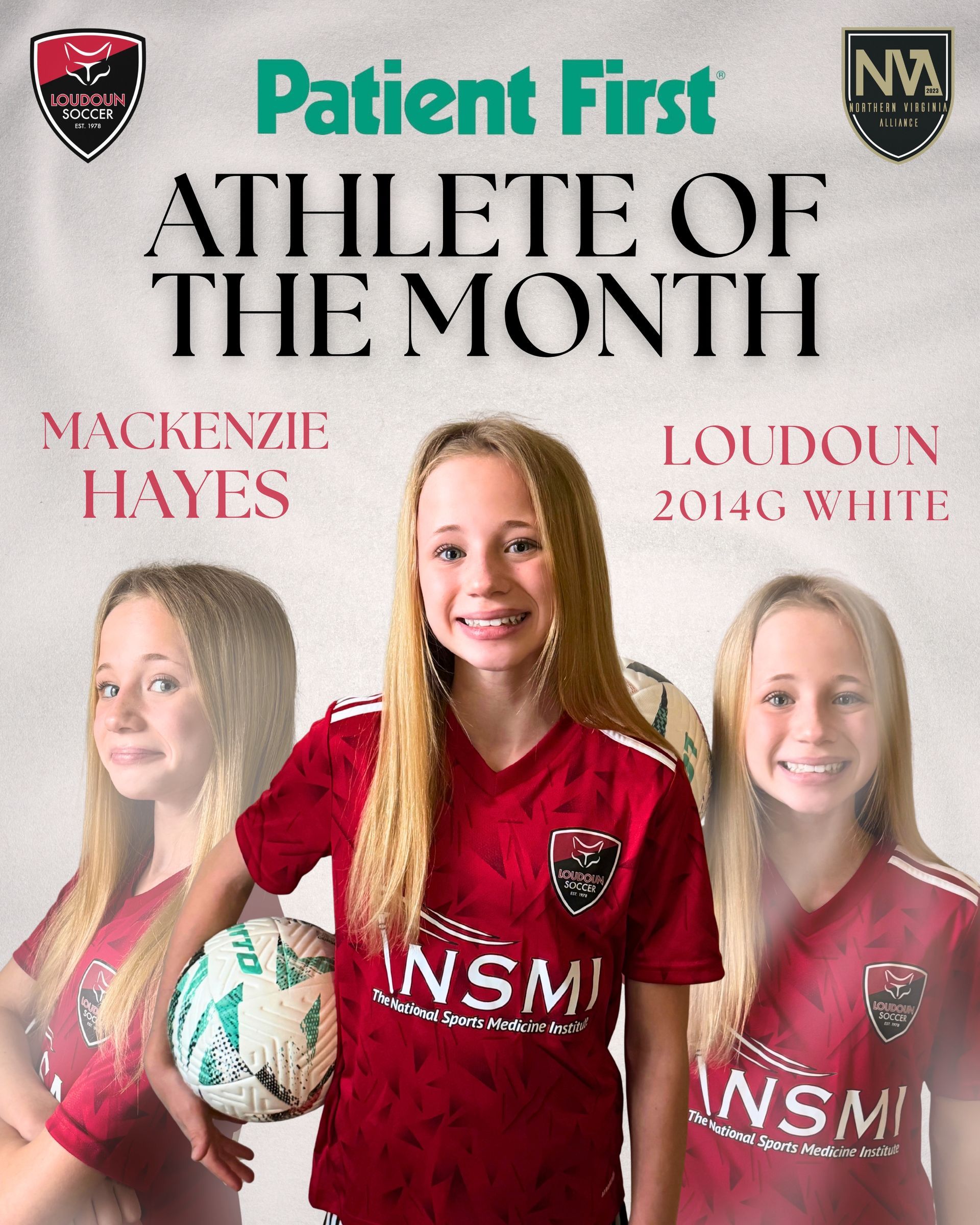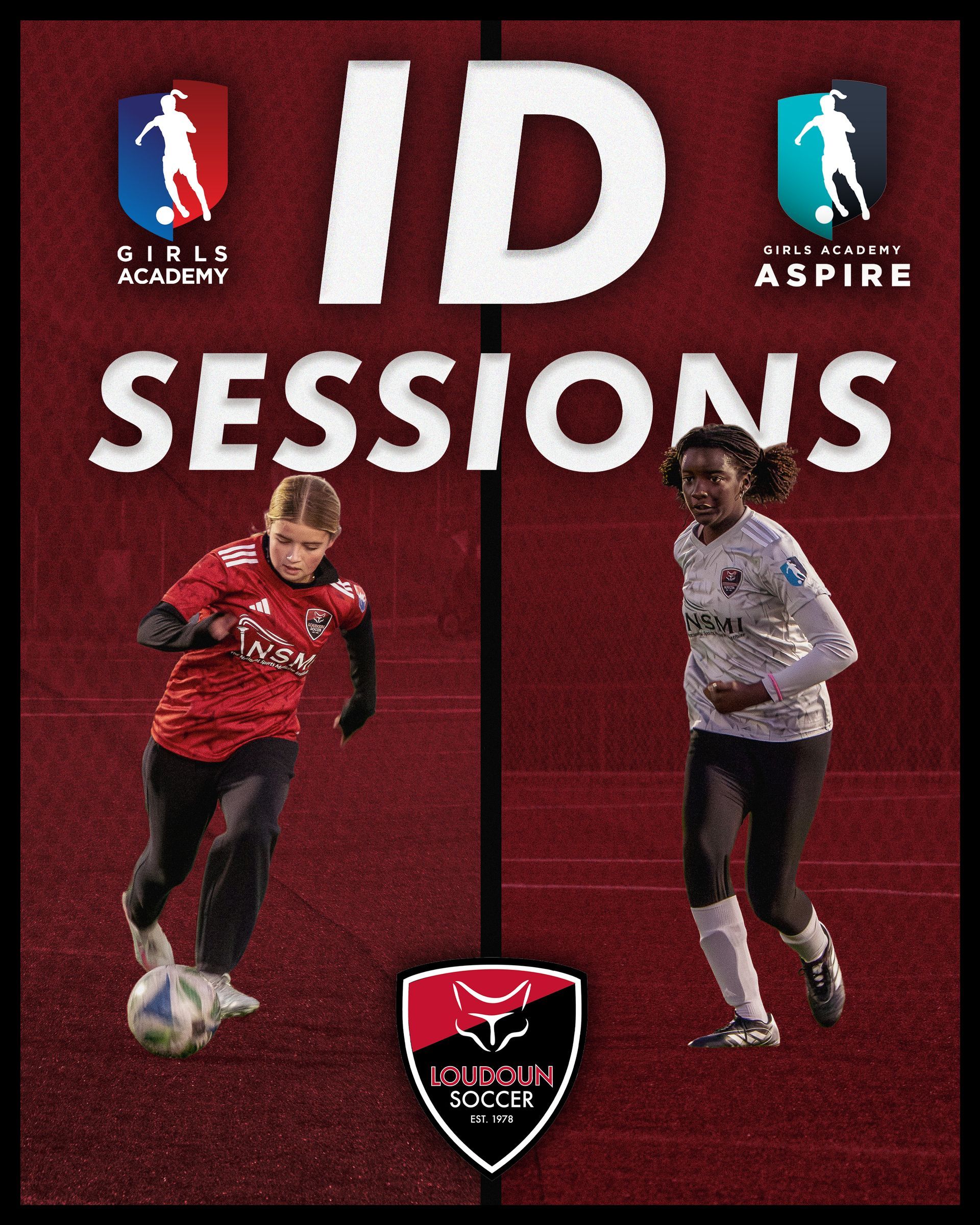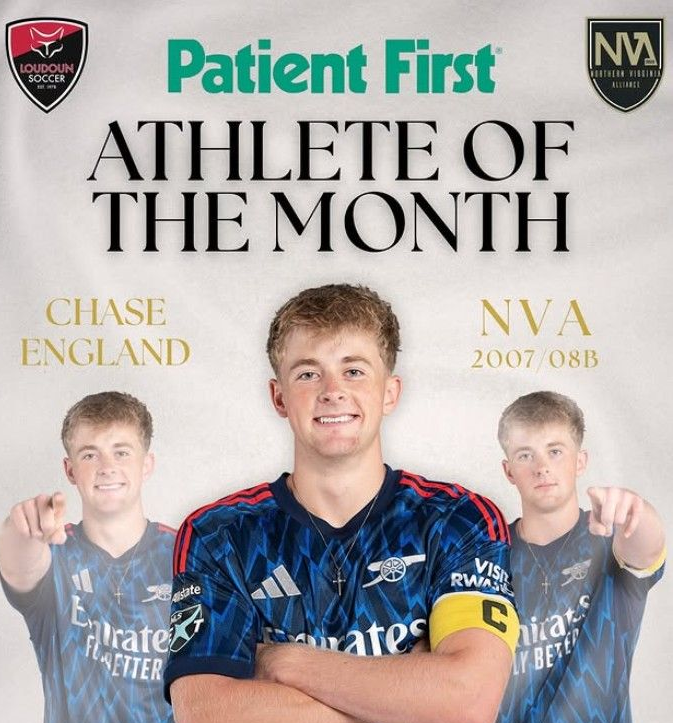LOCO GUNNERS BLOG: A Recent History of Arsenal FC
Despite what my son might say, I’m not as old as Arsenal. Dating back to 1886, when a group of workers at the Woolwich Arsenal Armament Factory formed their own football team, the club is one of the most storied in world football.
I’m not going to attempt to do a better job than
the club
or
Wikipedia have in putting together a history of the club before I was aware of it. Both are great resources if you want to learn how the team moved to North London, who the key people were in the pre-Premier League era, and how they compare with some of the other big clubs in England in winning trophies.
What I will attempt is to give my perspective on the club since I became aware of them in the mid-1990s. What has been their relatively recent history? How have they performed lately? How is it reasonable to think about the club in comparison to the rest of the Premier League and other legendary European clubs?
The Dawning of the Premier League Era
I became aware of Arsenal in the mid-1990s which, as it turned out, was a pivotal time for English football in general and for Arsenal specifically. During the 1994 World Cup, I saw Dennis Bergkamp play for the Netherlands against Saudi Arabia at RFK Stadium and immediately became a fan. In 1995, my satellite TV provider started broadcasting the Premier League, while Bergkamp joined Arsenal from Inter Milan.
For Arsenal, the arrival of Bergkamp - an established international star - represented a departure from the club’s recent tradition of defense-first, blood-and-guts play. The pre-Bergkamp editions of the club featured legendary England international defenders like
Tony Adams,
Nigel Winterburn,
Lee Dixon,
and
Steve Bould, and became famous for “1-nil to the Arsenal” wins.
Bergkamp was something else altogether. He was one of the most skilled attackers in the world who, along with manager
Arsène Wenger, appointed in 1996 ushered in an attack-oriented style of play that would captivate fans (myself included) and revolutionize the Premier League.
(If you’re interested in why Dennis Bergkamp motivated my fandom, here are some of
his greatest hits
on YouTube. If you only have a moment to watch, I’d recommend from 0:55 sec to 2:15 or so. Just incredible.)
The Wenger Era, Part 1 - Revolutionary Success
Arsène Wenger has been credited with bringing the Premier League into the modern era of professional sports. His approach to training and nutrition probably looks quaint by modern standards, but when he arrived at Highbury in 1996, the culture in English football wasn’t what we would associate with modern athletics.
Wenger also recognized that while English talent was expensive, there were market inefficiencies that would allow Arsenal to recruit foreign talent at a discount compared to their similarly-talented English counterparts. Soon, the Dutchman Bergkamp was joined by a number of Wenger’s French countrymen in the form of
Thierry Henry,
Robert Pires,
Patrick Vieira,
and
Sylvain Wiltord along with Swede
Freddie Ljungberg,
Brazilians
Edu and
Gilberto Silva, German
Jens Lehmann, and
Ivorian Kolo Toure in the first English club side that was competing for championships against the likes of Manchester United and their English/Welsh/Irish core of David Beckham, Ryan Giggs, Paul Scholes, Roy Keane, Rio Ferdinand, Gary Neville, Phil Neville, and Teddy Sheringham, with only a few high-profile foreigners sprinkled in from year-to-year.
While Manchester United were the dominant team of the early Premier League era, Arsenal also experienced great success, finishing either first or second in the Premier League in Wenger’s first nine seasons at the club (including winning league titles in 1997-98, 2001-02, and 2003-04). The 2003-04 squad,
The Invincibles, has the distinction of being the only side ever to complete a Premier League season undefeated.
The Wenger Era, Part 2 - The Move to the Emirates Stadium
While the first half of Arsène Wenger’s tenure at Arsenal was an unqualified success, the second half is a bit harder to characterize. There were a few things happening that changed the situation considerably:
- Arsenal executive leadership diverted money from buying players to finance the new, larger stadium that they felt was necessary to be financially viable heading into the next era of the Premier League.
- Chelsea, now owned by Russian oligarch Roman Abramovich, was spending money on the type of high potential foreign players that Arsenal had recruited in the late-90s and early 2000s.
- The rest of the league caught up to Arsenal’s approaches to training and nutrition, blunting what had briefly been a significant advantage.
- Not long after Chelsea rose to prominence on the back of Abramovich’s fortune, Manchester City was acquired by the Abu Dhabi United Group, further raising the financial stakes for success in the Premier League.
With Arsenal financially hamstrung by the move from Highbury to the Emirates, Chelsea’s deep-pocketed owner brought in players like Didier Drogba, Arjen Robben, and Petr Cech – the exact profile of players likely to have gone to Arsenal in the earlier part of the Wenger era. Arsenal’s financial struggles also cost them existing players, with superstar Theirry Henry moving to Barcelona, and England international
Ashley Cole moving to Chelsea.
The rise of financial powers at Chelsea and Manchester City, along with the continued might of Manchester United, relegated Arsenal to competing at the fringes of the Premier League title race for the remainder of Arsène Wenger’s time at Arsenal. Given the club’s inability to compete financially, holding him to the standard of his first decade in charge seems harsh. Despite FA Cup wins in 2013-14, 2014-15, and 2016-17, Wenger was ultimately relieved of his duties after 22 years in charge.
The Kroenke Era
Underlying the second half of the Wenger Era was a fight for control of the club. US-based businessman Stan Kroenke (owner of, among other things, the Los Angeles Rams, Denver Nuggets, Colorado Avalanche, and Colorado Rapids) had been increasing his stake in the club. Finally, in 2018, he completed his takeover of the club and declared his intention to once again compete with the top teams in England and Europe.
Kroenke was instrumental in calling time on the Wenger era and, after a brief tenure from Spaniard Unai Emery, appointing two former Arsenal players -
Mikel Arteta
and Edu to oversee the club’s revival as manager and technical director respectively.
The results over the past five years have improved progressively, with the club steadily climbing back up the standings after finishing 8th in 2019-20 and 2020-21. Arteta jumped up to 5th in 2021-22, and has finished 2nd in each of the past three campaigns. He has done so by almost entirely turning over the squad. He has focused on developing Arsenal’s academy talent with the likes of
Reiss Nelson,
Emile Smith-Rowe,
Bukayo Saka,
Ethan Nwaneri, and
Myles Lewis-Skelly having played significant roles under Arteta’s leadership.
Coming off of a second place finish in the Premier League and a run to the semi-finals in the Champions League, Arsenal’s men’s side are a few major summer acquisitions away from competing for titles in 2025-26.
The Arsenal Women: A History of Dominance
So far, I’ve focused on the men’s side because, until recently, that was the only Arsenal side that it was easy to follow from the US. That shouldn’t take away from the early commitment to and success in the women’s game at Arsenal.
The Arsenal women’s team was founded in 1987 and have been historically dominant ever since. Their numbers are staggering (from their Wikipedia page):
The club have won
15 league titles,
14 Women's FA Cups,
10 Women's National League Cups,
5 Women's FA Community Shields.
They are the only English club to win the UEFA Women's Champions League, having won in 2007 and 2025.
They are also the only English club to win the continental treble while going undefeated in all competitions played that same season.
In the 2006–07 season, the club became the first in the history of women's football to achieve the continental European sextuple.
The great news for Arsenal supporters in the US is that Arsenal’s women’s matches, specifically the Women’s Super League (the top women’s league in England) and the Women’s Champions League, are increasingly available to watch in the United States. Loudoun Soccer hosted a watch party at Anchor Bar last Spring for the Women’s Champions League final, where Arsenal defeated Barcelona for the right to call themselves champions of Europe. More
watch parties for both the men's and women's sides are planned for 2025-26.
A Local Connection
In addition to their historical and recent success on the pitch, Arsenal boast Loudoun County native and US Women’s National Team defender Emily Fox as a key starter in their current squad. Ms. Fox was born and raised in Ashburn and attended Stone Bridge High School. From her local roots, she went on to the perennial collegiate powerhouse University of North Carolina Tarheels, where she appeared in two national championship games. She also earned multiple caps from the USWNT before becoming the first overall pick in the NWSL in 2021. Drafted by Racing Louisville, she played for two seasons before moving to the North Carolina Courage and winning an Olympic Gold Medal with the USWNT. In 2024, she transferred to Arsenal to rejoin former college teammates Alessia Russo and Lotte Wubben-Moy, winning the Women’s Champions League title in her first season at the club.
If you’re looking for a reason to support Arsenal beyond the partnership between our clubs, I can think of few better than supporting a Loudoun County native who has already achieved so much in the game–with the promise of more to come!
Wrapping Up
Yes, I know that was a lot to cover, but what’s not to love? Loudoun Soccer has the great good fortune of partnering with a club that:
- Experienced historic success on both the men’s and women’s game in England and Europe;
- Boasts a history of recent success at the highest level on the women’s side;
- Features a strong trajectory on the men’s side, with Premier League and Champions League titles within reach as soon as the upcoming season;
- Built a strong academy program that has produced stars like Bukayo Saka, Serge Gnabry, and Myles Lewis-Skelly on the men’s side, and Alex Scott, Leah Williamson, and Lauren James on the women’s side–both with a great pipeline of talent close to breaking through;
- Features a local player as an integral starter on a championship side.
Clearly, I’m biased, but I couldn’t think of a professional club better positioned to earn your interest and attention than Loudoun Soccer partner, Arsenal FC!
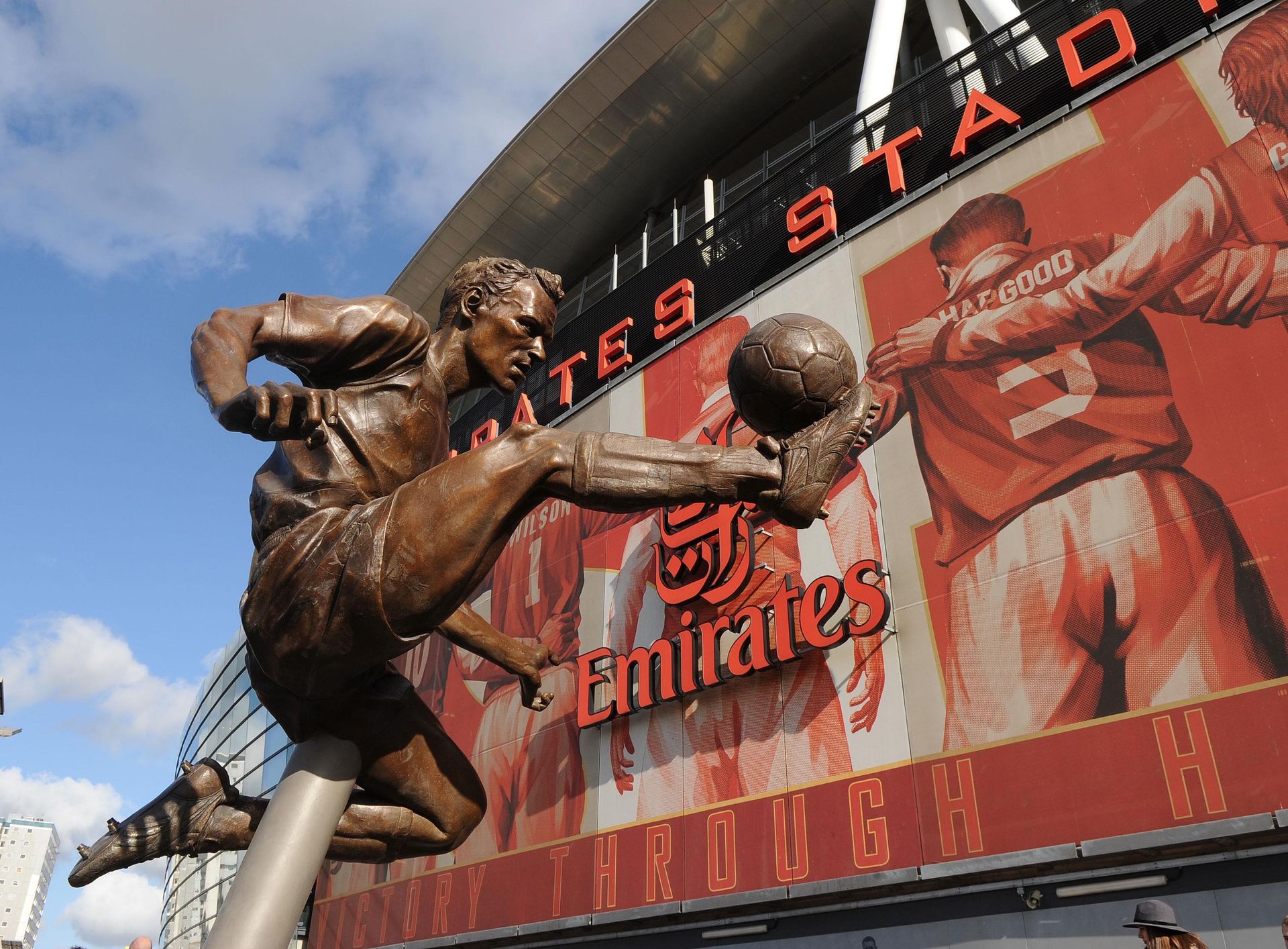
The body content of your post goes here. To edit this text, click on it and delete this default text and start typing your own or paste your own from a different source.
